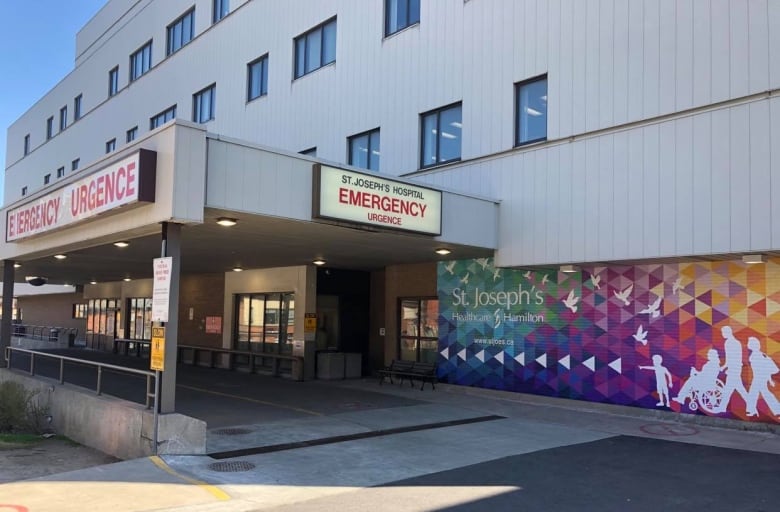Hamilton hospitals contacting hundreds of retired workers to prepare for COVID-19 surge
'The pandemic we're facing is unpredictable,' warned HHS CEO Rob MacIsaac

Hamilton's hospitals are finalizing a partnership with an area hotel or convention centre and have contacted hundreds of recently-retired healthcare workers in preparation for when COVID-19 peaks in the community.
Hamilton Health Sciences (HHS) has contacted approximately 700 recently-retired staff members to ask if they'd consider coming back to work, said chief operating officer Dr. Wes Stephen during an update Tuesday.
"I can't give you a number of how many successful re-entry people we have ... but it is an active file because we recognize as we escalate to peak demand we need to have staff to support the care of patients," he explained.
St. Joseph's Healthcare Hamilton has also been making calls to to past employees, according to president Melissa Farrell.
And that's not all. We're "actively looking for anyone within the community that has the experience or some knowledge [and] expertise ... so that we can have some reserve capacity," she added.
Both hospitals also have plans to free up a combined total of more than 1,200 beds in anticipation of a surge in patients that's predicted within weeks.
The update from the hospitals came after questions from the media about how the city was gearing up for the peak, were met with few details.
There were 183 cases of COVID-19 in the city as of noon Tuesday. Seventy-three of those cases are considered resolved. There have been five deaths connected to the coronavirus in Hamilton so far.
Rob MacIsaac, president and CEO of HHS, said both hospitals have been preparing based on provincial models that predicted as between 3,000 and 15,000 people in Ontario could be killed by the virus.
Stephen said his hospital is working with St. Joe's to find a large hotel or convention facility with access to laundry, food service and washrooms that would minimize the transport of COVID-19 patients.
The site would open up about 300 beds for HHS and another 150 for St. Joes.
But where exactly it will be remains to be seen.
Conversations have taken place with "various parties within Hamilton," said Stephen, but the location won't be released until the final deal, which is "quite close to being completed," is done.
The city's hospitals have experience dealing with surges in patients, said Winnie Doyle, chief nursing executive at St. Joe's, but this will be a "different challenge and I think a greater challenge."
She added they'll be focused on strict infection control outside the hospital setting and making sure hand washing and bathroom needs are met.
All told, St. Joe's should be able to offer 110 critical care beds and 100 ward beds, along with the 200 they've already freed up.
HHS expects to deliver 900 beds if needed — 370 acute care, 230 critical care, 300 beds in community.
Officials said they believe they have enough ventilators to meet the city's need but, if not, they can tap into provincial resources.
Hospitals making 'difficult choices'
In order to find space both St. Joe's and HHS have cut non-emergency surgeries and taking advantage of virtual visits wherever possible.
Those efforts have opened up about 40 per cent of its beds at St. Joe's Charlton Campus, said Farrell.
The hospital is doing 76 per cent fewer surgeries than before the pandemic and completed more than 5,000 virtual patient visits in March — a 1,000 per cent increase over the month before, said the president.
Meanwhile, surgical activity as HHS has been cut by more than half.
"These are very difficult choices ... for us to be making and can be very hard for patients and their loved ones," said Farrell. "But it is really important."

The next steps in planning for the virus include setting up COVID-19 and non-COVID-19 designated spaces and converting non-medical areas such as lounges or cafeterias into bed space.
Finding a location outside of hospital that can house hundreds of patients is the final stage.
MacIsaac said Ontario Health set a minimum target of 261 acute care and 91 critical care beds for Hamilton hospitals by the end of the month.
They've already achieved that and more, he said, complimenting staff on their work so far.
Still, "We have to acknowledge the pandemic we're facing is unpredictable," he warned. "It's overwhelmed hospital systems elsewhere in the world."